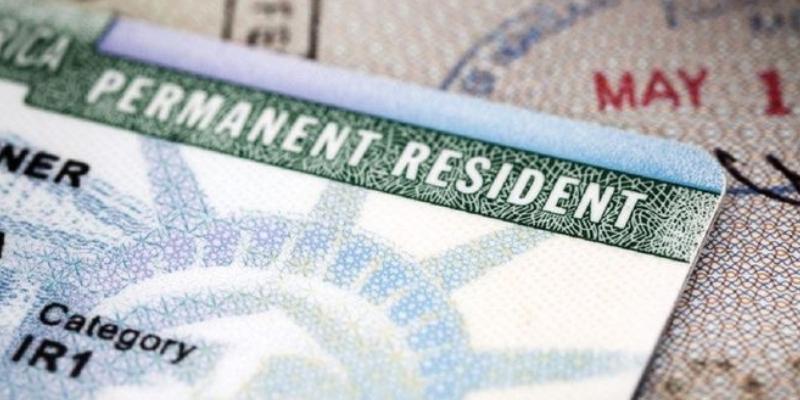
Obtaining a permanent residency visa comes with a plethora of benefits that make it an attractive option for individuals seeking to live and work abroad. These benefits include:
1. Stability:
One of the most significant advantages of a permanent residency visa is the ability to establish a stable future in a foreign country. Unlike temporary visas, permanent residency visas grant individuals the right to live and work indefinitely, providing a sense of security and peace of mind.
2. Freedom and Flexibility:
With a permanent residency visa, you have the freedom to travel in and out of the designated country without the restrictions and limitations that are common with temporary visas. You can pursue your career goals, study, or start a business without constant worries about visa expiration dates.
3. Access to Benefits:
Permanent residents often receive access to various social benefits, such as healthcare, education, and social security programs, just like citizens of the host country. These benefits can significantly enhance your quality of life and provide you and your family with the necessary support.
4. Paths to Citizenship:
In many countries, holding a permanent residency visa can be a stepping stone towards citizenship. This opens up further opportunities, such as the ability to vote, participate in local politics, and enjoy the full rights and privileges of being a citizen.
-Types of permanent residency visas available.
In order to obtain permanent residency in a foreign country, there are various types of visas one can apply for. Understanding the different options available is crucial for choosing the most suitable pathway.
1. Skilled Worker Programs:
Many countries have programs specifically designed for skilled foreign workers who can contribute to their economies. These programs usually assess applicants based on factors such as age, education, work experience, language proficiency, and job offers.
2. Entrepreneur and Investor Programs:
Some countries offer permanent residency visas to individuals who are willing to invest in their economies or start businesses. These programs often have specific investment requirements and provide opportunities for individuals with entrepreneurial ambitions.
3. Family Sponsorship Programs:
Most countries have provisions to allow permanent residents or citizens to sponsor close family members, such as spouses, children, parents, and siblings. These programs often require evidence of a genuine relationship and financial capability to support the sponsored individuals.
4. Refugee and Asylum Programs: Individuals
Who are fleeing persecution or seeking protection due to fear of harm in their home countries may be eligible for permanent residency through refugee or asylum programs. These programs provide a pathway for individuals in vulnerable situations to find safety and build a new life.
-Eligibility criteria and requirements for permanent residency visas.
- For Skilled Worker Programs, you may need to provide evidence of your educational qualifications, work experience, language proficiency, and job offers. Additionally, you may need to meet certain age requirements and pass a points-based assessment.
- Entrepreneur and Investor Programs often have specific investment requirements that must be met. You may be required to invest a certain amount of capital in the country or start a business that will contribute to the local economy. Proof of financial capacity to support your investment may also be necessary.
- Family Sponsorship Programs typically require evidence of a genuine relationship with the sponsor, such as marriage or parent-child relationship. You may also need to demonstrate financial capability to support yourself and your family members.
- For Refugee and Asylum Programs, you will need to provide documentation to prove your refugee or asylum status. This may include asylum application forms, supporting statements, and any other relevant documents.
– The Application Process for Permanent Residency Visas
- Firstly, you will need to gather all the necessary documentation. This may include personal identification documents, educational certificates, employment history, language test results, proof of funds, and any other supporting documents required for your specific visa category.
- Next, you will need to complete the application form accurately and thoroughly. Pay close attention to all the instructions and provide the requested information in a clear and concise manner. Any errors or missing information could result in delays or even rejection of your application.
- Once your application is complete, you will need to submit it to the designated immigration authority along with the required fees. Some visa categories may also require you to undergo medical examinations or provide police clearance certificates.
- After submitting your application, the processing time will vary depending on the visa category and the current caseload of the immigration authority. It is important to be patient during this stage and refrain from contacting the immigration authority regarding the status of your application unless specifically instructed to do so.
-Maintaining and renewing your permanent residency visa.
- Once you have received your permanent residency visa, it is crucial to familiarize yourself with the conditions and obligations associated with it. These conditions may vary depending on the country and visa category. Common obligations include maintaining residence, complying with the law, and not engaging in any activities that could jeopardize your status.
- To ensure that you meet these obligations, it is advisable to stay informed about any updates or changes to the immigration policies. Subscribe to newsletters or follow official immigration websites to receive timely information. Additionally, consider joining online forums or communities where you can connect with other permanent residents and share experiences and knowledge.
- Renewing your permanent residency visa is another important aspect to consider. Most countries require you to renew your visa before it expires to maintain your status. It is critical to keep track of your visa expiry date and start the renewal process well in advance. Gather all the necessary documentation and ensure that you meet the renewal criteria. Seek professional advice if needed and submit your renewal application within the specified timeframe.




